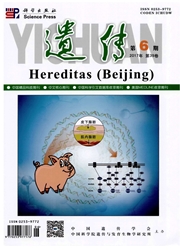

 中文摘要:
中文摘要:
单克隆抗体(Monoclonal antibody,mAb)在癌症以及自身免疫等疾病的诊断与治疗中得到广泛应用,并且取得了重大进展。当今应用于临床的单克隆抗体是在免疫球蛋白的基础上进行改造研发而得。然而近期发现的无颌类脊椎动物的特异性抗原受体一可变淋巴细胞受体(Variable lymphocyte receptor,VLR),为抗体类试剂或药物的研发提供了新的视角。与免疫球蛋白(Immunoglobulins,Ig)相比,VLR与抗原结合的特异性、亲和力及稳定性都优于Ig类抗体,并且抗原特异性单克隆VLR的制备技术日趋成熟。因此,VLR在临床诊断和治疗中具有更高的应用价值,并可能成为新一代的抗体药物。文章就VLR的基本特征、制备方法及其应用前景进行综述,为实现VLR在临床诊断与治疗等领域中的应用提供有益参考。
 英文摘要:
英文摘要:
Monoclonal antibodies, which are widely applied to the diagnosis and therapy of cancers as well as autoimmune diseases, have been made significant progresses. Currently, the monoclonal antibodies for clinical applications are mostly based on the modified immunoglobulins. However, the variable lymphocyte receptors (VLRs), which are recently discovered as specific antigen receptors ofjawless vertebrates, provide a new perspective for the development of antibody reagents and drugs. Compared with immunoglobulins, the antigen-binding specificity, affinity and stability of VLRs-based antibodies are better. In addition, the production technology of antigen-specific monoclonal VLRs has become more and more mature. Therefore, the VLRs have a higher clinical value and may become the next-generation antibody drug. This review focuses on the basic feature, production method and application prospect of VLRs, which provides valuable clues for the applications of VLRs in the field of clinical diagnosis and therapy.
 同期刊论文项目
同期刊论文项目
 同项目期刊论文
同项目期刊论文
 Full title: Characterization , phylogenetic analysis and cDNA cloning of natterin - like gene from t
Full title: Characterization , phylogenetic analysis and cDNA cloning of natterin - like gene from t 期刊信息
期刊信息
